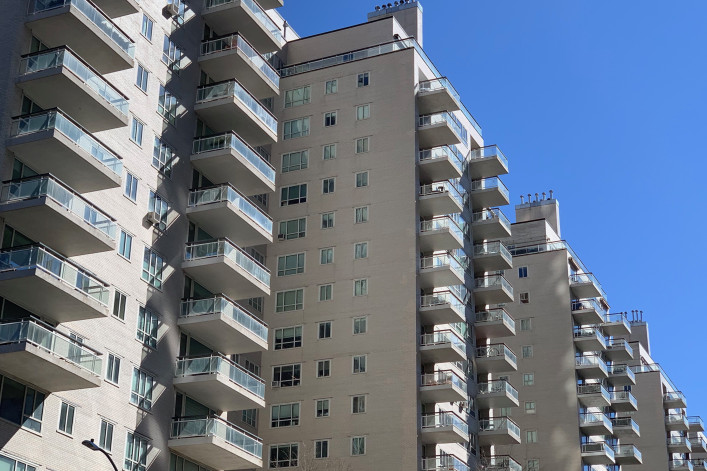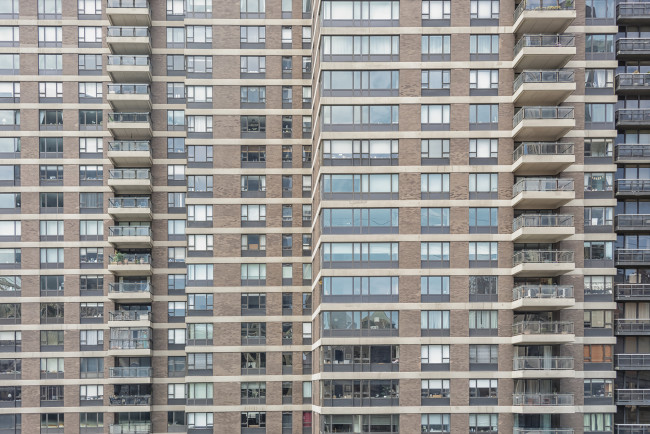Renting in a co-op? Here's what to expect if you have a board interview

For subletters in a co-op or condo, the interview is mostly a formality.
Not every rental apartment is in a rental building. Sometimes you can rent from the owner of a co-op or condo apartment—and there are a lot of advantages to going this route.
Renting in a New York City co-op can get you a bigger apartment with nicer finishes and amenities in a well-maintained building, but often there’s one extra step to the application process: A board interview. (Some condo buildings may require them for renters too.)
You may have come across more condos and co-ops available as rentals in your apartment search these days. Vickey Barron, a broker at Compass, says more owners have been subletting apartments because they’ve left the city during the pandemic but don’t want to sell right now.
And it might seem nerve wracking to have to go in front of strangers and answer personal questions after you already qualified for the apartment. If you’ve heard things about tough co-op boards and you’re feeling spooked—keep in mind that’s more of a concern for buyers, not renters. Still, it’s a good idea to brush up on what boards are looking for when they interview prospective renters.
One thing you should find reassuring: The interview is mostly a formality, says Victoria Vinokur, a broker at Brown Harris Stevens. Any questions about your finances will likely have been answered before the interview, and it should be a brief and pleasant exchange.
The interview is also the last step in the process, says Dianne Ackerman, the voice of Brick’s etiquette column Ms. Demeanor. She has been on the co-op board of her Upper West Side building for 10 years and is currently the vice president.
By time you meet the board, your application has already been approved and if there were any red flags in the board package, like if you don’t meet the income requirements, the board would communicate that to management before an interview was scheduled.
Keep in mind that renting in a co-op building can take longer than applying for an apartment in a rental building. The process used to take anywhere from two to six weeks, but now, with boards doing reviewing packages online and meeting via video conference, it is faster, says Svetlana Choi, a broker at Warburg Realty.
Read on for how to prepare for your co-op board interview.
How to prepare for the interview
Working with a broker is your best option, especially if they’ve worked with the co-op board before, so they can help prepare you for the interview. “I usually do a pre-interview so they’re prepared for potential scenarios and questions,” Choi says.
Barron says she also role plays with many of her clients before the board interview. “It’s important to be humble and allow the questions to be asked before you give an answer,” she says. “And, do not volunteer any extra information.”
The building will likely ask you why you want to live there, so be prepared to briefly explain why you chose the apartment and building. You can share why you like the neighborhood or your reason for subletting.
If your parent is co-signing the lease, they will also have to be at the interview, Ackerman says. And, if you’re moving in with a significant other, they might also have to be present. So make sure everyone who is on the lease can be there.
These days, you are likely to have co-op board interview on Zoom, however some buildings still prefer an in-person interview because they feel like they can get a better idea of who you are, Choi says.
Another tip: Make sure you’re dressed professionally, even if you are meeting via video conference, and are on time to the interview. First impressions count.
What to expect during the interview.
When you get to the interview, you will likely be in front of the entire board. It’s usually quick, no more than 30 minutes, Ackerman says.
Usually, the interview is similar for prospective subletters and buyers, Vinokur says. But, the board might put more emphasis on the house rules in an interview for a subletter.
In some buildings, like the co-op Ackerman lives in, the interview process and questions are exactly the same for shareholders and subletters, she says. It’s a chance for you to meet the board and for them to get to know who you are. “We also give everyone a chance to ask us questions,” she says.
Once the interview is underway, make sure you don’t get defensive if you’re asked questions about your job security or finances. The board really just wants to make sure you can afford the rent, because if you default, the shareholder of the apartment might fall behind on their monthly maintenance or common charges, which could impact the building.
When it comes to what specific questions, it’ll be mostly about your lifestyle and if you’re going to be a good neighbor, Choi says. You’re mostly approved at this point and they just want to make sure you won’t cause any issues.
Some questions you might be asked: “Do you have any pets?,” “Who else will be living in the apartment?,” “Do you work from home?,” “Have you read and understood the bylaws or house rules?,” ''Do you play any instruments?,” And, “How did you hear about the building?”
You should also be personable, find common ground with the board, keep your emotions in check, and don’t bring up religion or politics, Choi says.
But not all co-op buildings are the same, so be prepared. Barron says that if it’s a small co-op building, where everyone helps take care of the building, you might be asked how you can contribute and share duties. She recently had a client who interviewed for a building that operated like a true cooperative and the board wanted someone who could pitch in.
If it’s a bigger, luxury co-op building, they board will likely be more focused on whether you will be a respectful and quiet neighbor. Barron had one client who interviewed to sublet in a bigger building and the apartment was above the board president. So, most of their interview questions were about making noise, she says.
And, some boards will handle the interview completely differently. For example, Ackerman says that her building usually doesn’t ask specific questions about noise and parties because anyone can lie and say they’ll never throw a rowdy party. “Asking those questions is useless,” she says.
So, if your application has already been approved, you should be fine at the interview. All of the brokers and co-op board members Brick spoke to say they’ve almost never seen an applicant rejected after the interview—just be polite and don’t say anything crazy.
You Might Also Like




























